At DELTA, we support Good Nutrition and always highlight its many benefits.
For all of us at DELTA, good nutrition is based on a sustainable production model, encompassing processes which are friendly to the environment.
For all of us at DELTA, good nutrition is based on a sustainable production model, encompassing processes which are friendly to the environment. Reducing our carbon footprint is at the core of our efforts on sustainability. This is why, starting in December 2023, we joined the international initiative Science Based Targets Initiative (SBTI). Our commitment is to reduce DELTA’s direct and indirect carbon emissions (Scope 1 & Scope 2) by 42%, and the indirect emissions (Scope 3) of our supply chain by 25%, by the year 2030.
To that end, we have decided to implement a set of initiatives which will help us to markedly improve our performance on all levels.
We set meaningful and achievable goals
For any green transition to succeed, it has to ensure that a company’s operational costs will not increase exorbitantly—and affect production costs in the process.
To ensure a balance between production costs and green investments, we implemented an innovative program.- Based on a methodology pioneered by the Athens University of Economics and Business, we recorded our performance throughout the supply chain, while quantifying our contribution to the United Nations’ Sustainable Development Goals (U.N. SDGs).
This allowed us to determine the areas in which we could improve our performance and, in many cases, compare it to the industry’s global leaders.
Our production processes respect the environment
At DELTA, we strive to use and manage natural resources in the most effective way possible, in all levels of our operation.
In this context, within 2023:
- We committed the Science Based Targets Initiative (SBTi)
- We reduced our Scope 1&2 emissions by 26.45% and 15,07% respectively, compared to 2022, while at the same time decreased electricity consumption by over 8%.
- We reduced water consumption at our facilities by 19%, compared to 2022.
- We renewed our Rainforest Alliance certification for Milko, verifying that the cocoa used is produced with respect to the environment, biodiversity and local communities.
- 100% of all our hazardous waste was managed by licensed agencies.
- 94% of our food production waste was upcycled.
- 99% of our total waste was upcycled, recycled or reused, resulting in receiving the Zero Waste to Landfill “Gold” certification from EUROCERT in 2024 for our performance in waste management.
Meanwhile, within 2024:
- Our climate Scopes have been validated by the international initiative Science Based Targets initiative (SBTi). Specifically, we commit to reducing direct and indirect greenhouse gas emissions (Scope 1 & 2) by 42% by 2030, indirect emissions (Scope 3) by 25%, and emissions from land use (FLAG) by 30.3%.
Additionally, we ensure the avoidance of deforestation for our directly associated key products, aiming for full implementation of this commitment by December 31, 2025. - We completed one of the 20 largest energy net-metering works in Greece, installing a 2.0 MWphy PV system at our Ag. Stefanos factory and a 1.4 MWphy PV system at our Sindos factory. This is expected to reduce our energy purchasing by 15-17%.
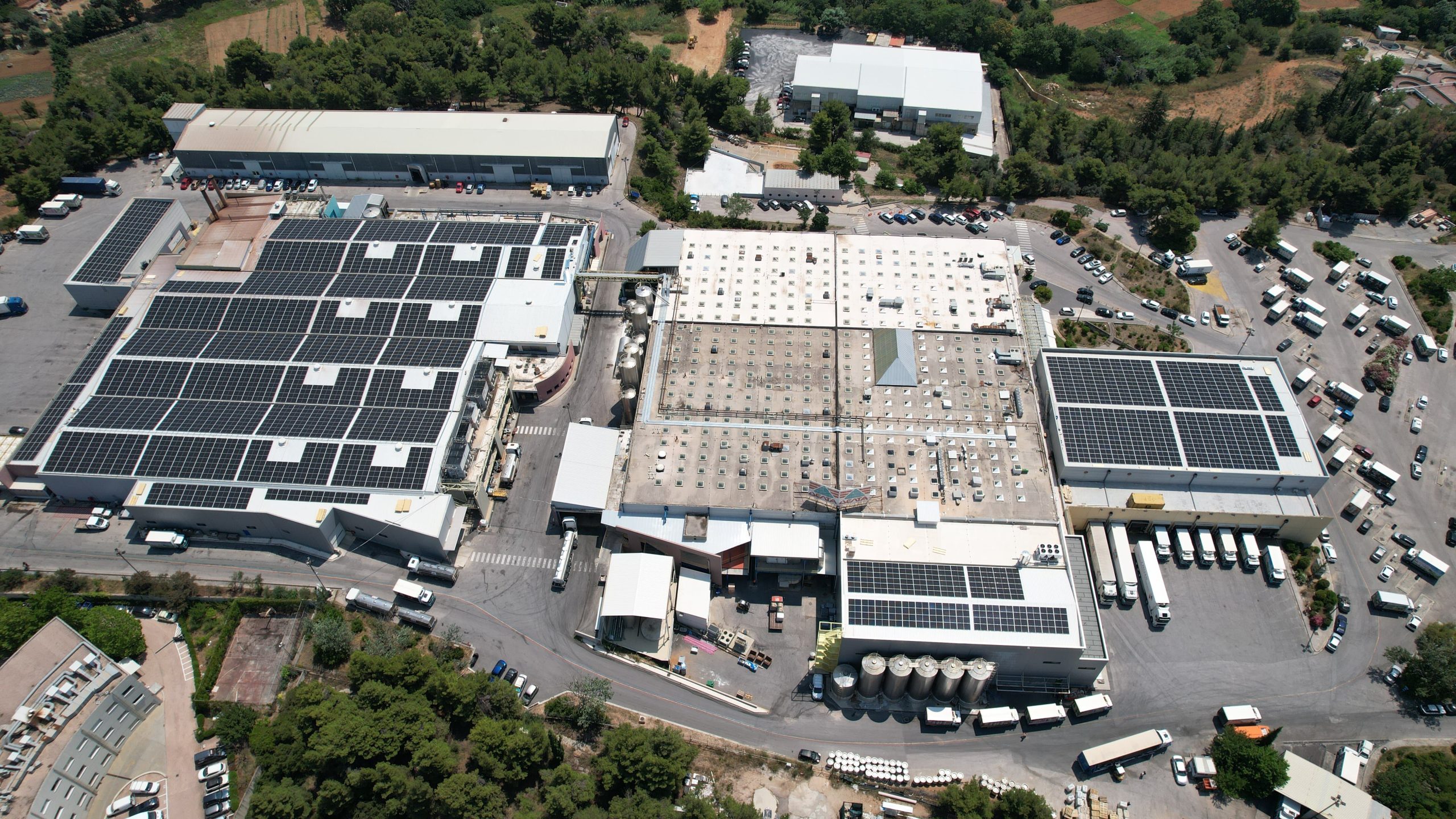
Optimising our packaging
Aiming to promote the principles of circular economy and the optimal use of natural resources, our people are involved in a constant effort to upgrade our packaging.
- In 2023, we received an “OK RECYCLED” certification from TÛV Austria Helllas, for 29 of our products that use 90% recycled paper and 8 that use 35% recycled plastic—a practice that has resulted in the reduction of 32 tons of virgin paper and 30 tons of virgin plastic, respectively.
- We reduced by 30% the plastic used in our “TOU TOPOU MAS” milk products.
- We redesigned our Miko bottle with a new, non-removable lid, while using 35% recycled plastic.
- All our bottles feature non-removable lids, in order to reduce environmental waste.
- All our paper packaging is certified by FSC, verifying that forest management takes place in a responsible way.
- In 2024, we became the first company in Greece to use 30% bio-circular material in our Vitaline yoghurt packs, resulting in a 18.5%-22.9% reduction of CO2 emissions.
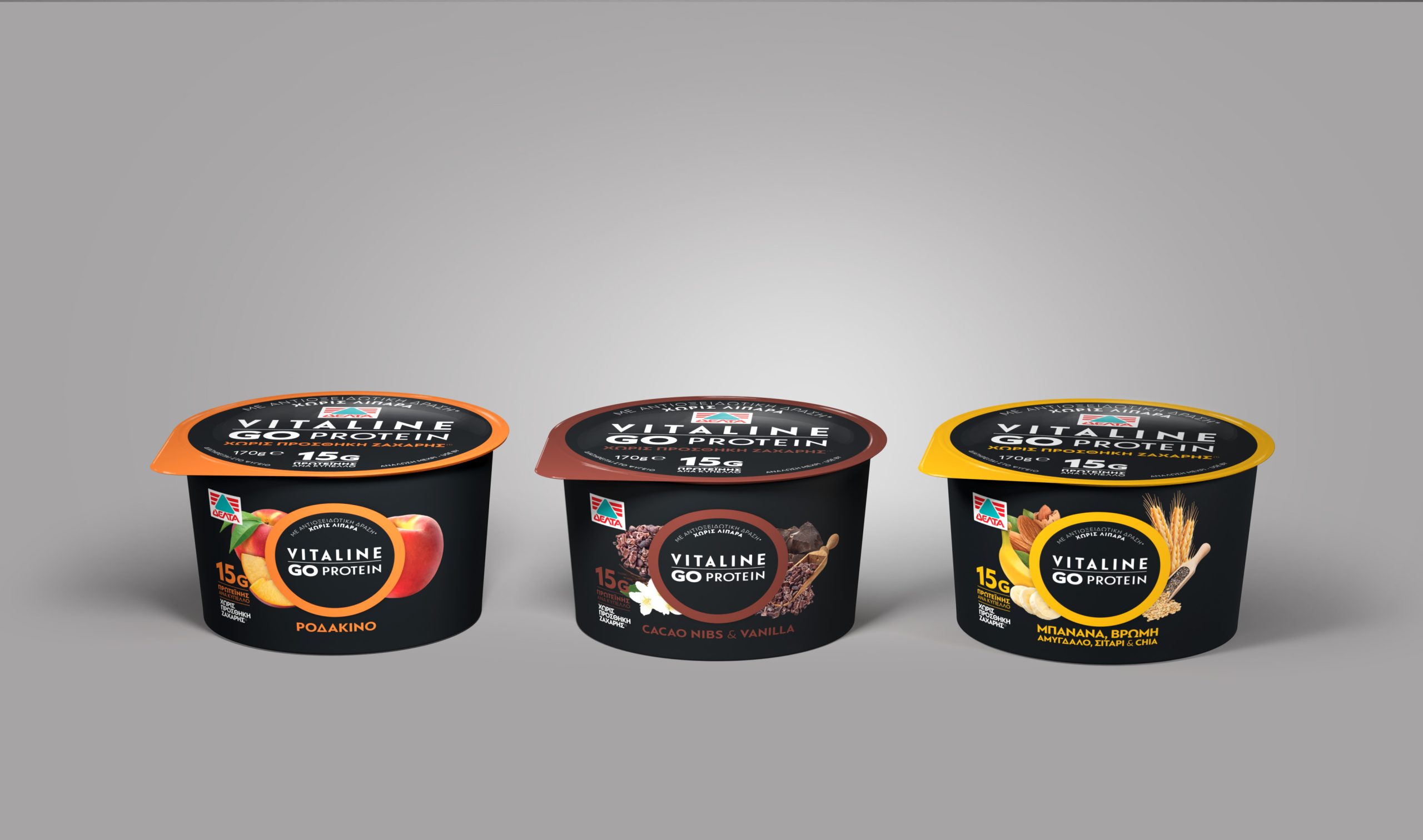
Reinforcing the sustainability of our transports
One of our main everyday goals is to distribute products of high quality and nutritional value safely and in an environmentally friendly manner.
Within 2023, we implemented a large optimization program for our distribution Network in Attica, replacing our existing plan with a 100% mixed product delivery schedule. As such, by reducing the daily mileage of our trucks, we helped to improve traffic conditions and reduce air and noise pollution.
We continue to use Blue Marble—an innovative, environment-friendly fuel additive—in our self-owned truck fleet – we reduced unburnt carbon particles (soot) by 97%, CO emissions by 72%, and hydrocarbon emissions (HC) by 72%, compared to 2021.
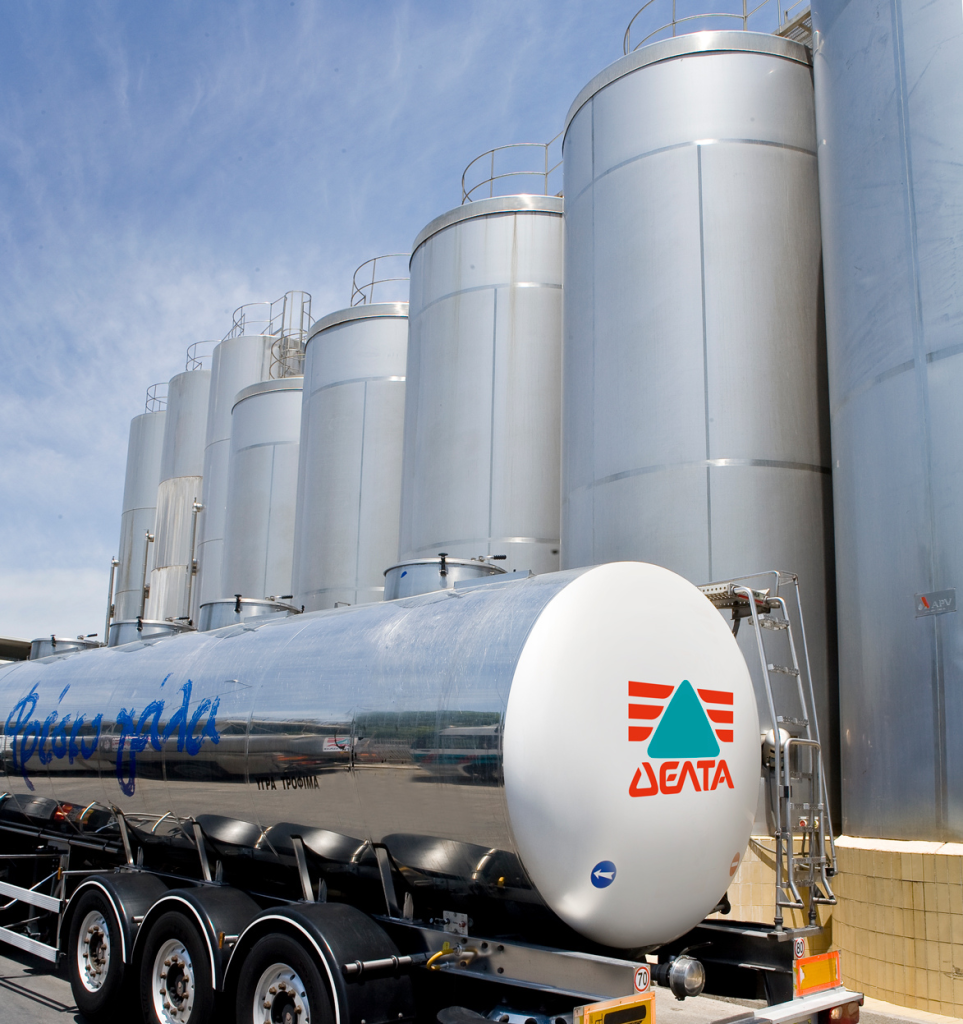
We addressed the issue of food waste on all levels.
According to Eurostat, food waste in Greece surpasses 2 million tons annually, when measured across 5 stages of the food value chain (primary production, processing, sales & distribution, food service and households).
This means that when it comes to food waste, Greece has one of the least favorable rankings in the EU, with 191kg per capita.
As we want to play an active part in reducing food waste, DELTA implements a comprehensive, multi-level plan of continual reduction of food waste.
- Any surplus from our production is donated to socially vulnerable groups through trusted organizations. A valuable partner in this effort is the non-profit organization ‘Boroume’ , through which we donated 395,912 food portions in 2023 to people in need.
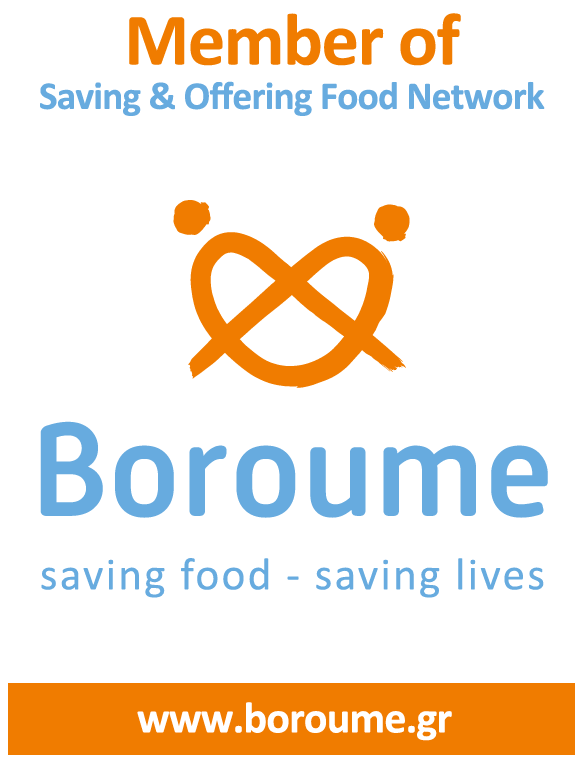
On the production level, we implement an innovative program on demand forecasting, which allows us to produce the quantities demanded by the market. As a result, in 2023, we reduced forecasting inaccuracies by 98%, when compared to 2021.
- For our products reaching the retail market, we collaborate with AB Vassilopoulos, My Market, and ANEDIK Kritikos, utilizing various tools such as price reductions as the expiration date approaches and jointly covering the cost of managing surpluses. This initiative is even highlighted as an example of good collaborative practice with tangible results in the recent report by the European Commission (p. 16).
- Also, unused food products that return to us, are collected and forwarded to specialized partners who reprocess them into animal feed. This particular action has been implemented since 2006 and it’s important to note that, in 2022 alone, 5,000 tonnes of returned food products were reprocessed into animal feed—a figure which represents over 80% of all returned animal-based food products.
Also, as a member of the Alliance to Reduce Food Waste we participate in many consumer education and awareness activities, in an effort to promote the reduction of food waste in households.
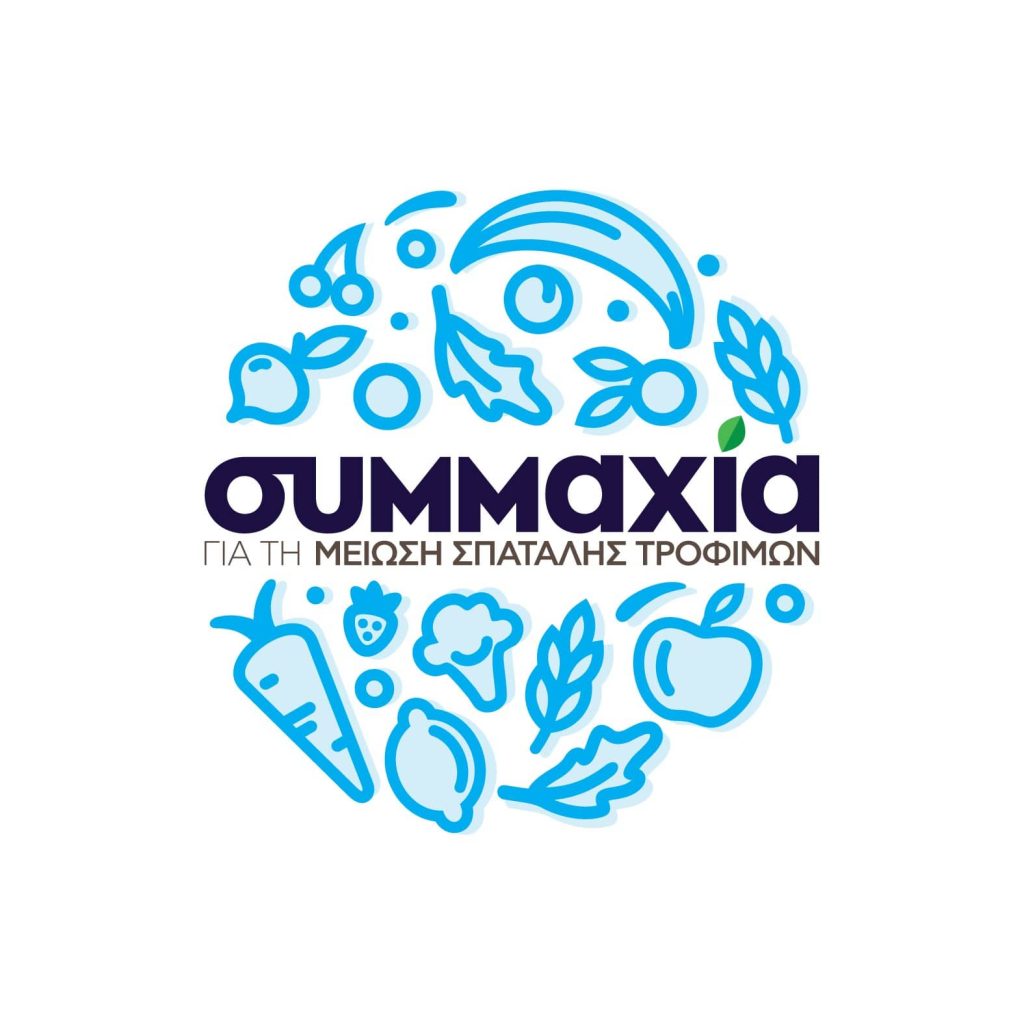
We actively support sustainable development—and have the awards to prove it.
At DELTA, sustainable development is at the very core of our business model. We produce products of high quality and nutritional value, in an environmentally friendly way, while creating substantial social and economic added value for the entire ecosystem in which the company operates.
As a result, in April 2024, we received a platinum award by EcoVadis, an international evaluation, for our business practices on sustainable development.
This ranking, positions DELTA in the top 1% of all companies which EcoVadis evaluates on a global level.
Our commitment to the principles of sustainable development is a fundamental value of our business strategy and corporate culture.
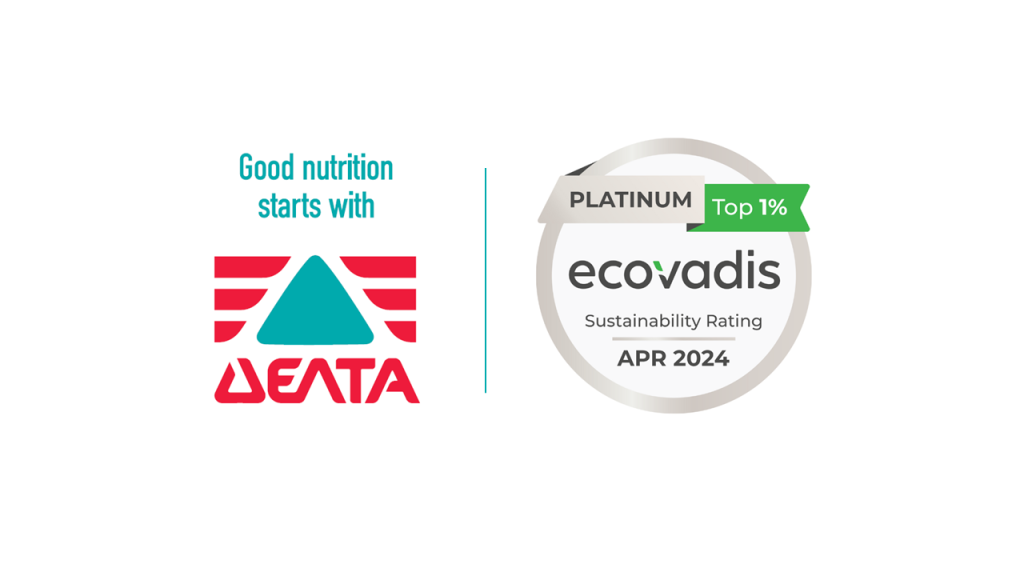
Our commitment to the principles of sustainable development is a fundamental value of our business strategy and corporate culture.
In May 2024, the company was named as one of the “50 more sustainable companies in Greece” by the internationally-recognized organisation QualityNetFoundation.
DELTA’s recognition in the ESG section is a result of collaborative actions on all levels of the company’s operation. It also highlights DELTA’s commitment to producing food products of the highest quality and nutritional value, in a manner which is sustainable and also helps to reduce the company’s environmental footprint.
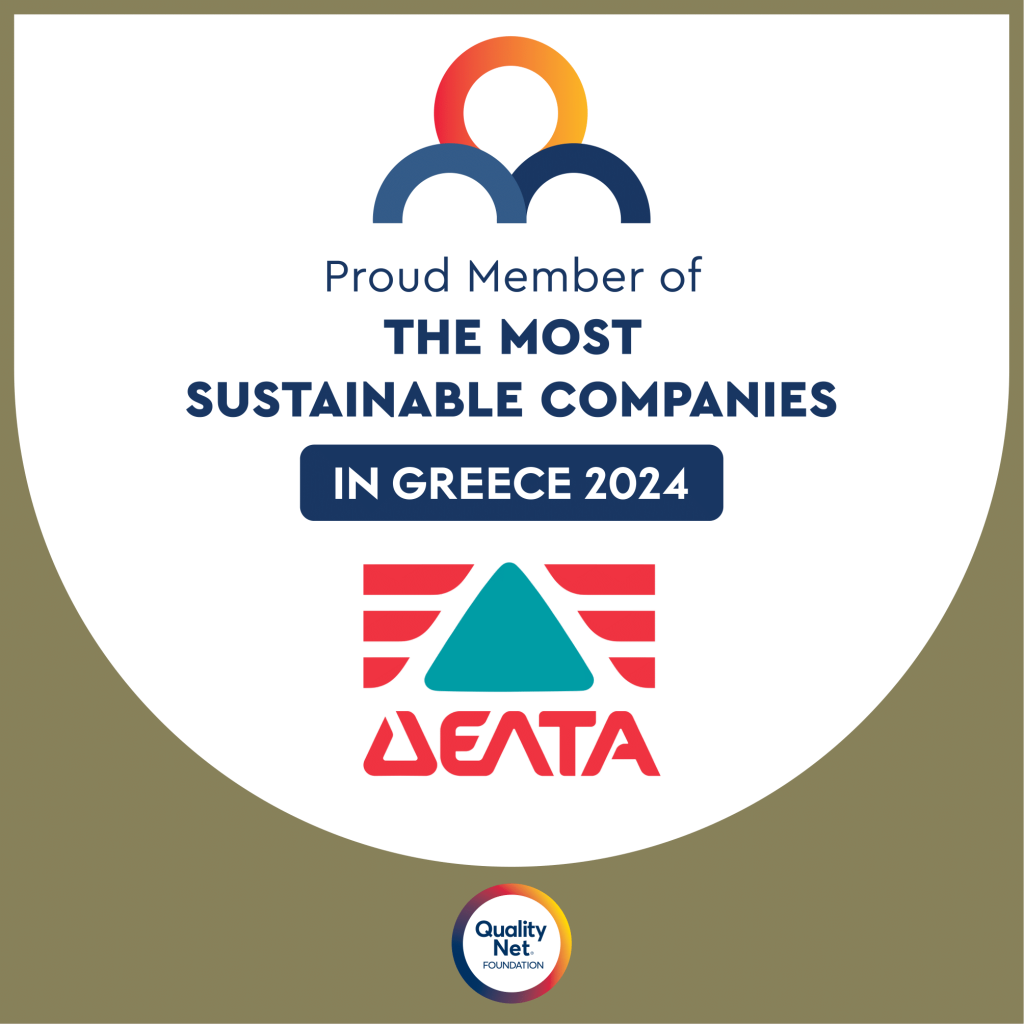
For an in-depth view of the company’s actions, you can read the most recent Sustainable Development report here.

